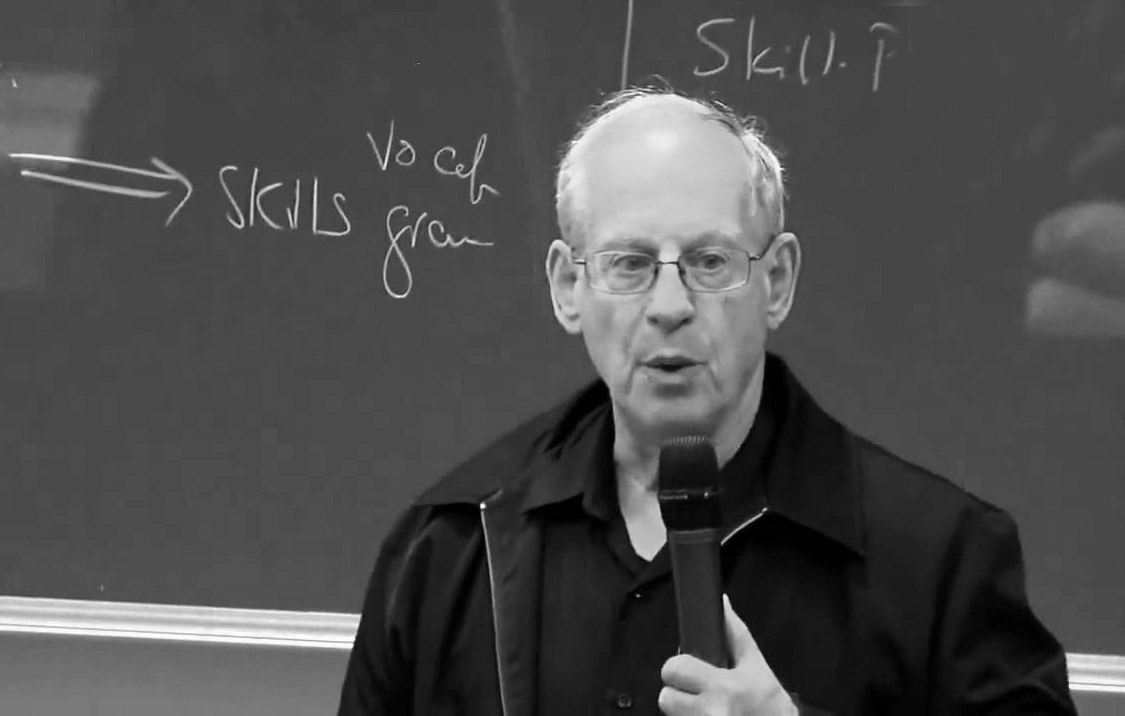Stephen Krashen is an American linguist best known for his work in the field of second language acquisition.
In 1982 he published a very influential essay on “Principles and Practice in Second Language Acquisition”. Krashen hypothesizes that second language acquisition is very similar to the process children use when acquiring their first language. It requires meaningful interaction in the new language in which speakers are concerned with the messages and understanding, and not with the grammatical form of the language.
The most important parts of Krashen’s theory are:
- Acquisition and learning: there two ways in which language develops. Language acquisition is subconscious and occurs when you find a need to communicate with others. Language learning, on the other hand, involves explicit learning with direct instruction about the rules of the language.
- Monitor: once a student has conscious knowledge of grammatical rules, they are able to self-monitor the language they use. In practice that means that instead of just saying what your mind is telling you to say, you use the monitor to stop, analyze and correct.
- Affective filter: learners require an environment where they feel safe to take risks necessary to learn the language. A learner’s emotional state, character and motivation affect how efficiently they learn a language.
- Comprehensible input, or language content that can be understood by the learner while remaining one step above the learner’s language ability, is recommended in order to encourage critical thinking and new learning.
In short, you acquire language best via exposure to comprehensible input.
It is not that successful language learners have some special talent. It is the unsuccessful people that have something that hinders their learning, i.e. the affective filter and the monitor.
Krashen’s theories were the inspiration for the so-called “natural approach” to language learning, which was published in 1983. It assumed language would emerge spontaneously once students had heard and seen a lot of target language content.
Krashen’s theories were criticized but have had a significant impact on language teaching and learning.








